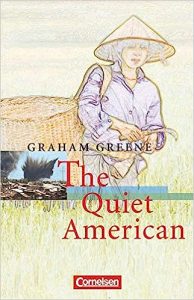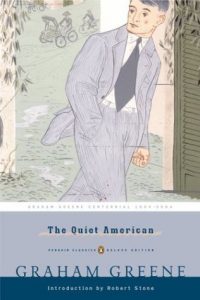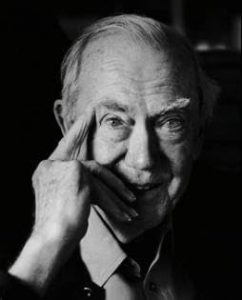After I’d been accepted at Bishop Otter College to train as a teacher in 1965, I was sent a general reading list. I suppose the idea was simply to get students reading more widely. Interestingly it went to all students – not just the ones interested taking English as a main course. Now I’ve always liked reading lists (usually, these days, in the form of book reviews in newspapers etc) because they give me recommendations and nudge me towards things I might not otherwise have discovered. The Bishop Otter list (with hindsight I wonder who compiled it and what the criteria were?) included James Joyce, CP Snow, Gavin Maxwell and Graham Greene among many others. I don’t know what other students did but I steadily worked my way through most of what was on the list over the next three years and beyond.
Thus I came to Graham Greene (1904-1991). I read all his major titles (vivid memories of giggling over Our Man in Havana in a tent in Greece in 1966). But – apart from one or two short stories such as The Destructors and A Little Place off Edgware Road which often appeared in school anthologies I was teaching with – I have read very little of his work since. So how has The Quiet American (1955) fared 67 years after it was published and over half a century since I first read it? Surprisingly well, I think.

We’re in Vietnam in the early 1950s during the Indo-China wars. The eponymous quiet American is a idealistic man named Alden Pyle who’s a CIA agent. The narrator, Fowler, is a cynical but troubled British journalist. At one level it’s a love (lust? power?) triangle because both men want the same girl, Phuong. Perhaps more importantly it’s a pretty devastating, condemnatory account of war.
Greene was often accused of writing journalistically as if he shouldn’t but Fowler’s account of the deaths of the women and children after the explosion of the bomb in the square is masterly. So is a bombing sortie he goes on with a French pilot named Trouin:
Down we went again, away from the gnarled and fissured forest towards the river, flattening out over the neglected ricefields, aimed like a bullet at one small sampan on the yellow stream. The cannon gave a single burst of tracer, and the sampan blew apart in a shower of sparks: we didn’t even wait to see our victims struggling to survive, but climbed and headed for home.
Later Trouin tells him that what he hates most is napalm bombing. “You see the forest catching fire. God knows what you would see from the ground. The poor devils are burnt alive, the flames go over them like water. They are wet though with fire”.

Discussions between Pyle and Fowler, who become close but are never friends, focus on the former’s simplistic views and the latter’s worldly wise languor, enhanced by opium. Their awkward relationship is further complicated by their being attacked when stranded by a car breakdown. Fowler is shot in the leg and Pyle saves his life which alters the dynamic although it isn’t what either of them wants.
The novel, which has been filmed twice, is presented in punctuated flashback. It begins with the death of Pyle who had been planning to marry Phuong. Fowler has to break it to her. It ends with the sort of fairytale ending that Phuong, who isn’t fully developed as a character and always seems a bit distant, reads about in her magazines. But we’re not at all sure it will be “happy ever after” whatever that means in real life.

One of the most interesting and attractive things about Greene’s writing is the insouciance of his observation. I loved, for instance, “the gun fire travelling like a clock-hand round the horizon”. And this glorious bit stopped me in my tracks:
“Will you have a cup of tea?” “Thank you. I have had three already.” It sounded like a question and answer in a phrase book.
Next week on Susan’s Bookshelves: The Group by Mary McCarthy